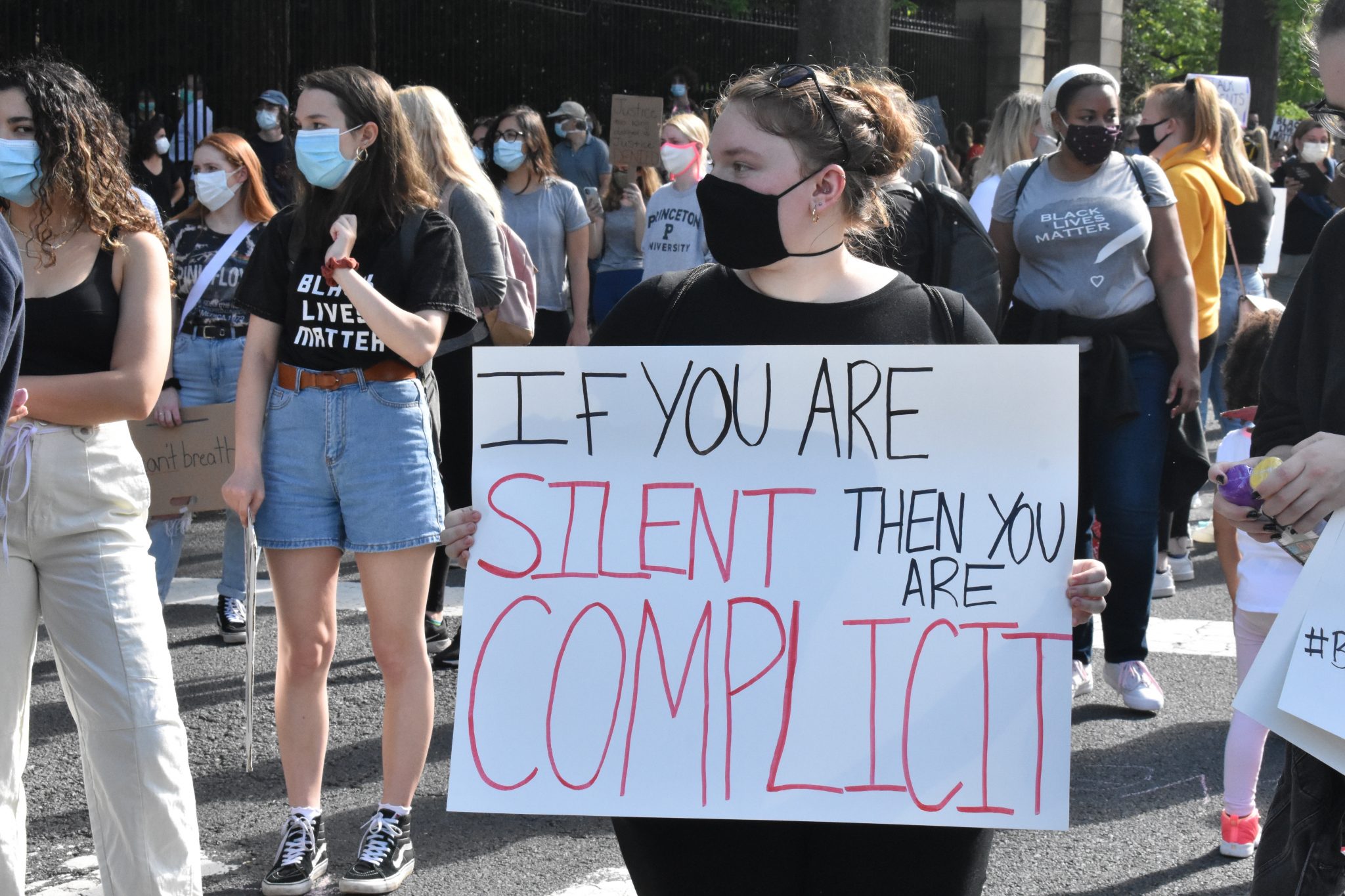I have been a resident of Princeton for over 10 years. Many people know me by my performance name, Shariese Katrell. However, as a Black, disabled, female social activist, student and musician, I wanted to do more to bring awareness to the injustices that Black’s and other marginalized groups experience in high-class areas.
As a student of education, I conducted my own racial equality experiment to analyze how White privilege can be used for positive or negative change. In June, I applied for a permit to march peacefully and protest for Black Lives Matter. However, I was told that I could not have over 25 people and the streets could not be blocked off. Yet, I had attended several rallies and marches on Nassau Street and Witherspoon Street where the streets were blocked off by police and there were over 25 people many times. In some instances, I saw the police following behind the protesters to ensure their safety. However, these events and demonstrations were all organized by my Caucasian allies who also stood for Black Lives Matter. Although I was not granted my initial permit to march by the Princeton municipal officials, I was granted a permit to peacefully assemble on June 13, in Community Park South, for a social justice rally I organized. Though I was thankful for the permit to assemble, I wanted to do more and bring awareness.
Many volunteers assisted me with the social justice rally, which was successful. After the rally, a White male volunteer participant approached me about doing more. So, I provided him the same information I was given to apply for the same permit but on my behalf. However, it required the voluntary participant to use his name and information. Many times, in different communities an individual’s racial identity can be revealed by their name, address and many say, “a person’s voice”. I wanted to see if he would be rejected also and how White privilege could play a role in accomplishing my goal. Although it is my First Amendment right to protest, with the same information the participant willingly applied and was granted the permit and even spoke to the officials that were in charge, who gladly assisted him, also providing options and even volunteering to provide information to fellow officers who agreed with the Black Lives Matter movement.
Although I am a disabled Black female with a Arabic name and I live in a low-income area in Princeton, I questioned “was I denied and secluded to one area and told that I could march with over 25 people, and were not given alternative options because the municipal officials could identify my race”? I was frustrated but I recognized how systematic racism still exists in the cities like Princeton. I feel my name, address and voice identified me as a minority, therefore I was rejected.
The volunteer participant, a White middle-aged male living in a high middle-class area, with a Jewish/Polish ethnic background, was treated with respect and provided with multiple options for the march. The municipal precinct officials continue to work with the White male, who can also be identified by his Polish last name to some; he continues to willingly work with me because he cares about Black lives and police reform. Though I am really the lead organizer, I am thankful for the opportunity to work with my allies like the White male volunteer and others, to help me bring awareness and education to those who demonstrate racism actions and some who do not see that they are racist.
Systematic racism continues in “the land of free and the home of the brave”. I will continue to stand up for people like myself and other minorities, which some feel are on the other side of the tracks of Princeton similar to other high-class areas. The ability to bring awareness to how Black Lives Matter and the systematic injustices is what I hope to accomplish by working along with diverse volunteers and conducting voluntary researches that show inequalities.
I am the lead organizer for BlackLivesMatter: Equality March in Princeton on July 11, where we will assemble with co-organizers Mothers Rising, an organization that represents the mothers of Black children who are against police brutality. I will also be joined by my voluntary research participant from Princeton University.
As young lady raised in Newark, I also wanted to give a voice to those in Newark.
The March for Equality will reflect different organizations, poets, speakers and others to help give them an opportunity to express their opinions on racial inequities and police reform. All genders, races, ages and religious groups are welcome to join us and walk. The march will be from 2-5 p.m.. All those who want to be a participant of this peaceful demonstration will assemble at the Princeton YMCA at 1:30 p.m. The route of the march will be starting at the Princeton YMCA, going down Paul Robeson Place and crossing over onto Chambers Street, then onto Hulfish Street, and proceeding to Hinds Plaza, staying on the sidewalk where there will be different speakers.
For more information, email me at [email protected]
Shariese Katrell
Princeton

